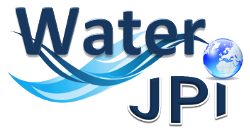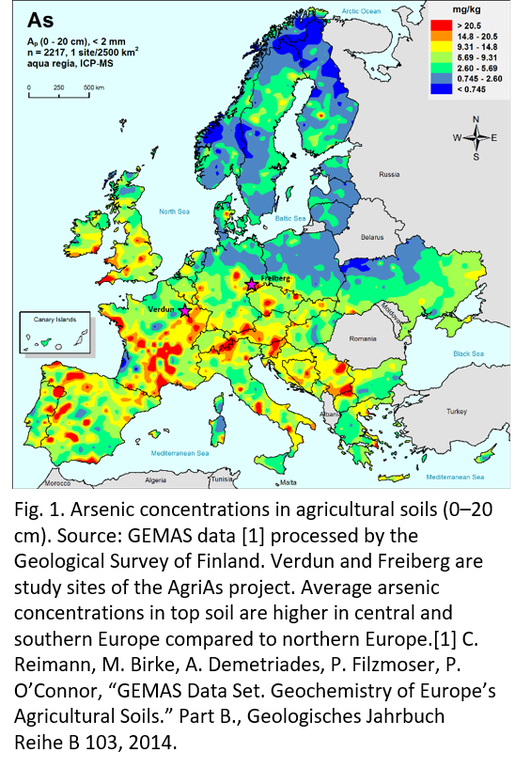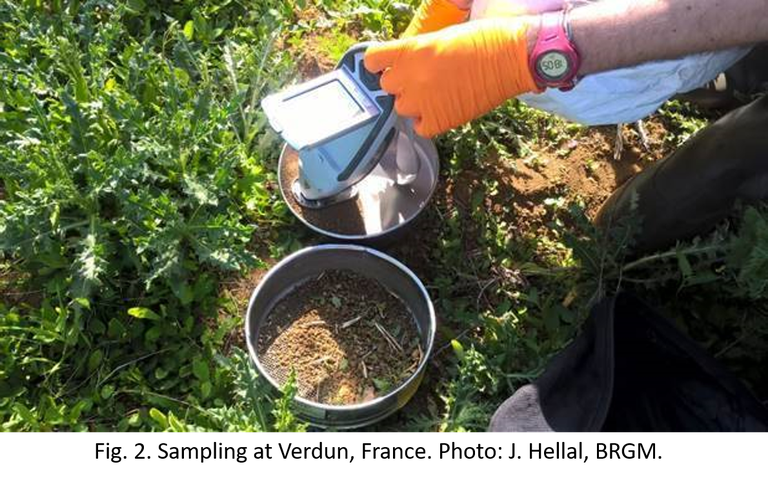Newsletter September 2020
Collaborations:
Kirsti Loukola-Ruskeeniemi - AgriAs project Coordinator - Geological Survey of Finland
Fabienne Battaglia-Brunet - AgriAs project
Susan Reichel - AgriAs project
Riitta Keiski - AgriAs project
Celia Jones - AgriAs project
Juha Kaija - AgriAs project
Osman Tikansak – Formas Sweden
Cristina Delerue-Matos – Rewater Project Coordinator - Associated Laboratory for Green Chemistry (LAQV) of the Network of Chemistry and Technology (REQUIMTE)
Hendrikus Nouws – Rewater Project
Manuela Correia – Rewater Project
Valentina F. Domingues – Rewater Project
Sónia Figueiredo – Rewater Project
Olga Freitas – Rewater Project
Elena Surra – Rewater Project

BiodivRestore Call pre-announcement
The Water JPI and BiodivERsA are pleased to pre-announce a joint call for research and innovation projects on Conservation and restoration of degraded ecosystems and their biodiversity, including a focus on aquatic systems.
This joint call ...
The Water JPI and BiodivERsA are pleased to pre-announce a joint call for research and innovation projects on Conservation and restoration of degraded ecosystems and their biodiversity, including a focus on aquatic systems.
This joint call includes a focus on freshwater aquatic systems but all environments (i.e. terrestrial, freshwater and marine) are eligible.
This call will cover the following three non-exclusive themes:
- Studying the biological and biophysical processes at stake for conservation/restoration, and their interactions
- Assessing trade-offs and synergies between targets, benefits and policies for conservation and restoration
- Knowledge for improving the effectiveness and upscaling of conservation and restoration actions
At this stage, the following countries have expressed a preliminary interest to participate in the call with a total amount of over 18 Million euros*:
Austria, Belgium, Brazil*, Bulgaria, Czech Republic, Denmark, Estonia, Finland, France, Germany, Ireland, Latvia, Lithuania, Moldova, Morocco, the Netherlands, Norway, Poland, Portugal, Romania, Slovakia, South Africa, Spain, Sweden, Switzerland, Taiwan, Tunisia and Turkey
* The list of Brazilian States participating in the call will be communicated later
For more information, please check the program's website here.
Water JPI Water4SDGs Knowledge Hub Workshop #2: ‘Alignment of Water Related RDI Activities to Support UN SDGs in light of COVID-19 Challenges’
The 2nd Workshop of Water4SDGs Knowledge Hub was organized virtually on July 9, 2020. The event was attended by researchers, policy makers and funding agency representatives to frame a ‘position paper’ that addresses the key question of “how to ...
The 2nd Workshop of Water4SDGs Knowledge Hub was organized virtually on July 9, 2020. The event was attended by researchers, policy makers and funding agency representatives to frame a ‘position paper’ that addresses the key question of “how to align research agendas and strategies to facilitate the implementation of water related SDGs globally under the pandemic conditions?”. The attendees were invited to handle this issue by addressing the following questions:
- What is the potential of water related RDI activities in responding the crises (short term) and building risk management and resilience capacity (long term) in response to pandemic conditions?
- How far are we from the global implementation of SDG 6 targets by 2030? How did the COVID-19 affected the UN SDGs agenda and what opportunities might have been discovered to foster international cooperation?
- How should research funding organizations address COVID-19-water security connections in national, regional and international call programs (in terms of call topics, structures, eligibility criteria, expected impacts, dissemination and exploitation procedures)?
The morning session of the workshop provided the opportunity for three key-note presentations by the esteemed representatives of EurEau (Bertrand Vallet, Policy Officer), UN-Water (Olcay Unver, Vice-President) and European Commission (Avelino Gonzalez Gonzalez, Senior Policy Officer). In the afternoon, the workshop attendees were split into to break-out discussion groups to scrutinize the zero draft of the position paper.
The expert group of Water4SDGs Knowledge Hub set to work on the position paper following the vacation season with the aim of publishing and disseminating the document until the end of November 2020.
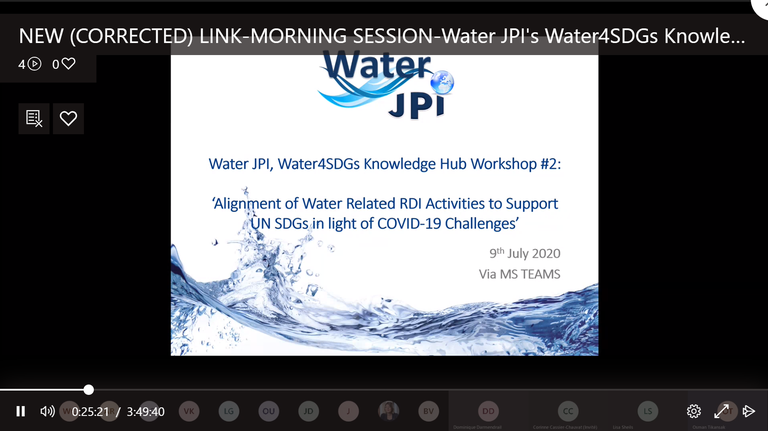
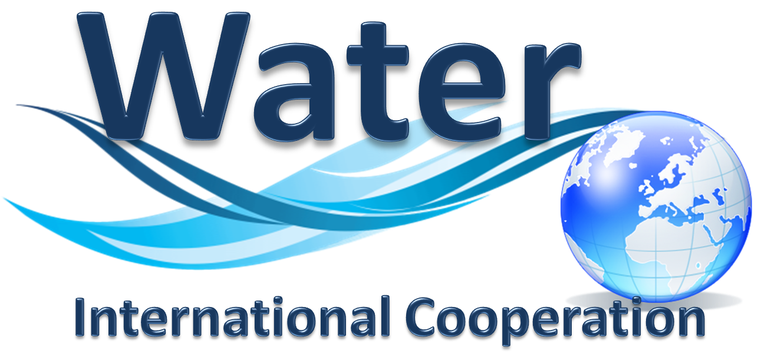
Publication of the proceedings of the International cooperation workshop – Lisbon, December 2019
The Water JPI, as part of its supporting Coordination and Support Action IC4Water, is looking at opportunities to develop a common strategy for International Cooperation (IC) with other European initiatives. IC4Water held a workshop on “Future ...
The Water JPI, as part of its supporting Coordination and Support Action IC4Water, is looking at opportunities to develop a common strategy for International Cooperation (IC) with other European initiatives. IC4Water held a workshop on “Future Cooperation in Research and Innovation with countries beyond Europe” on 4 December 2019 in Lisbon, Portugal. This workshop followed two workshops held under WaterWorks2015 and two workshop held under IC4WATER. It was designed to elaborate a common strategy with other relevant EU and international initiatives on international cooperation in the context of research, development and innovation (RDI) activities. It was attended by 40 participants representing international funding agencies, international initiatives (PRIMA, CEWP, Belmont Forum) and representatives of the Water economic sector. It aimed at:
- collecting the views from International / non-European initiatives,
- better understanding the difficulties faced to join JPI activities,
- Proposing models for further cooperation with different types of partners.
- Considering how to deal with possible different preferences from the economic sector (in cooperation with WP3).
This should help establishing, when possible, alliances with selected RDI international programmes.
The workshop discussions highlighted the needs to co-construct a Research and Innovation Agenda and related implementing actions, to co-define the priorities, to share the global objectives and means to achieve them, to have flexible procedures, an equitable approach and some incentives to overcome the barriers on IC.
Workshop materials are available here.
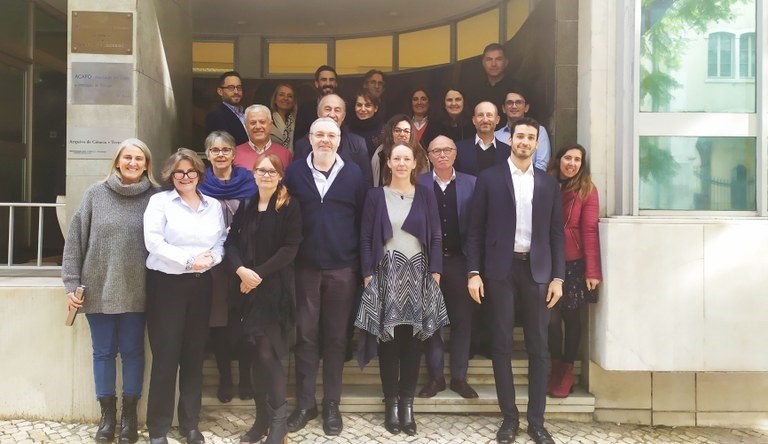
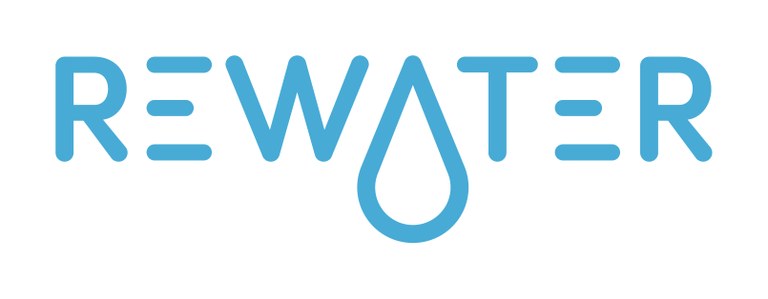
Call 2016 - REWATER- Sustainable and safe water management in agriculture: Increasing the efficiency of water reuse for crop growth while protecting ecosystems, services and citizens’ welfare
The REWATER project proposes to develop an innovative joint research and application of technologies that will minimize negative impacts of waste water reuse in the environment, decreasing the undesirable introduction of emerging contaminants (ECs) ...
The REWATER project proposes to develop an innovative joint research and application of technologies that will minimize negative impacts of waste water reuse in the environment, decreasing the undesirable introduction of emerging contaminants (ECs) in agriculture and aquatic systems, reducing their spread within the food chain and, and consequently, human exposure. According to the Watch List of Substances established under the Water Framework Directive (Decision EU 2018/840), ECs such as specific pharmaceuticals and pesticides should be monitored, especially because of the reduced removal of these pollutants by conventional treatments in Waste Water Treatment Plants (WWTPs).
Therefore, pharmaceuticals and their transformation products and pesticides were monitored, using chromatographic techniques, in the Lis River (Portugal) and the Putna river (Romania) as well as the contributions of the WWTPs located along these rivers (Figure X). Pharmaceuticals and pesticides were detected from the source to the mouth of the rivers and in influents and effluents from the WWTPs.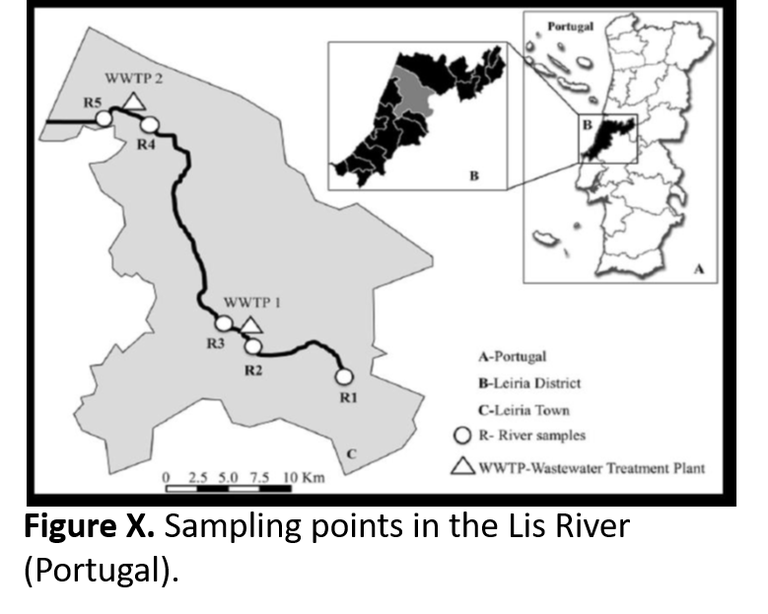
To simplify the analysis techniques, small and very low-cost (paper-based and molecularly imprinted polymers) electroanalytical devices were developed and applied to the determination of ECs.
Because of the presence of the ECs in the analysed waters, tertiary treatment processes for their removal were studied: advanced oxidation (e.g. electro-Fenton), bioremediation (e.g. mycoremediation and phycoremediation), adsorption using biochars, and combinations of these processes.
However, even if the concentration of ECs is achieved by these treatment processes this does not necessary reflect a relevant toxicity reduction. The complementary evaluation of toxicity decrease was based on integrated endpoints using different animal models, such as the pond snail (Figure Y) and zebrafish embryo/larvae. 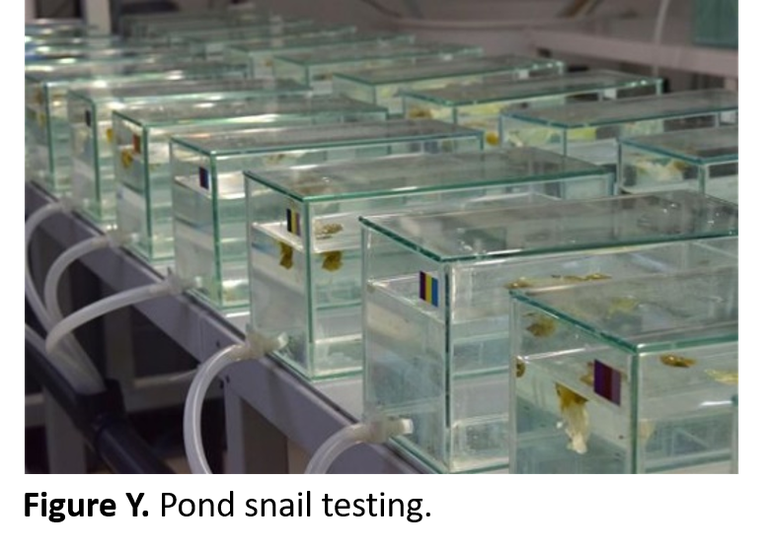
Life Cycle Assessment and Life Cycle Costing is ongoing to assess the sustainability and the economic viability of the treatment processes at full scale.
In summary, the goals of the REWATER project are: (i) Monitoring ECs in two rivers and WWTPs (ii) Design of electrochemical (bio)sensors for specific ECs with increased sensitivity, lower costs and easier to use; (iii) Improvement of treatment technologies (biological and electrochemical) to remove ECs, providing new insights into environmental and economic approaches; (iv) generation of ecotoxicological tools that may also be employed in the monitoring of ECs in natural aquatic ecosystems, and strategic follow-up monitoring of WW treatment.
Interaction among the consortium partners, allied with stakeholders of the water industry, will enhance collaborative research and innovation, as well as national and international cooperation in the water sector, beyond the REWATER lifespan. The project also allowed mobility of the consortium members, post-graduate students and post-doctoral fellows engaged in the project.
The consortium organized an international videoconference in June 2020. This conference allowed the dissemination of the results, fruitful discussions of the work and networking.
More information about the project can be found at: www2.isep.ipp.pt/rewater
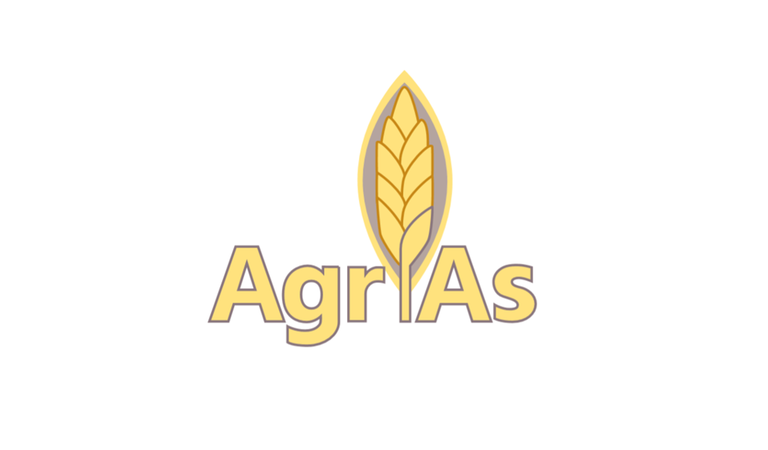
AgriAs project developed risk management for agricultural soil and water contaminated with arsenic
AgriAs summarized European databases and developed recommendations and guidelines for the sustainable management of risks posed by arsenic in agricultural areas. Research institutes, universities and companies from Finland, France, Germany and ...
AgriAs summarized European databases and developed recommendations and guidelines for the sustainable management of risks posed by arsenic in agricultural areas. Research institutes, universities and companies from Finland, France, Germany and Sweden participated in the project.
Agricultural topsoil contains more arsenic on average in central and southern Europe than in northern Europe (Fig. 1). There are geological reasons for the difference. However, contamination from mining activities, ammunition, wood preservatives, insecticides and herbicides has increased arsenic concentrations in the European environment.
The French study site was an area of destruction of World War I chemical ammunition located at Verdun in a sensitive zone both for agriculture and groundwater (Fig. 2). The German study site in Freiberg, Saxony, is characterized by mining and ore processing. After 800 years of mining, 288 km² of agricultural soils show values exceeding the German action value of 50 mg/kg arsenic.
Soil remediation experiments were successful with a biologically synthesized adsorbent sorpP.
The preliminary health risk assessment showed that if a significant proportion of dietary intake comes from contaminated sites, the consumption of contaminated food products can lead to increased health risks.
Experimental and sustainability analysis for arsenic removal technologies from agricultural surface water showed that the adsorption and coagulation-filtration processes were the most feasible options for the treatment of surface waters with significant arsenic concentrations.
Recommendations were compiled in close cooperation with authorities and stakeholders.
Finally, we established a general risk management. Risk management for safe use is the main option for extensive agricultural areas, while remediation options that directly treat the soil can only be considered in smaller areas subject to sensitive use. Each site has different characteristics and therefore we recommend the case-by-case assessments and agricultural treatments to be assessed on a small scale before attempting the treatment of large areas.
Please see the Layman’s report of the AgriAs project: http://projects.gtk.fi/export/sites/projects/AgriAs/downloads/AgriAs_Laymans_report_17_12_2019.pdf
Additional information: Project Coordinator Kirsti Loukola-Ruskeeniemi, Geological Survey of Finland. E-mail: kirsti.loukola-ruskeeniemi@gtk.fi
Figures
.
Acknowledgements
The AgriAs project ‘Evaluation and management of arsenic contamination in agricultural soil and water’ was co-funded by the European Union and the Academy of Finland, L'Agence nationale de la recherche, Bundesministerium für Ernährung und Landwirtschaft and Forskningsrådet FORMAS under the ERA-NET Cofund WaterWorks2015 Call. The ERA-NET is an integral part of the 2016 Joint Activities developed by the Water Challenges for a Changing World Joint Programme Initiative (Water JPI).
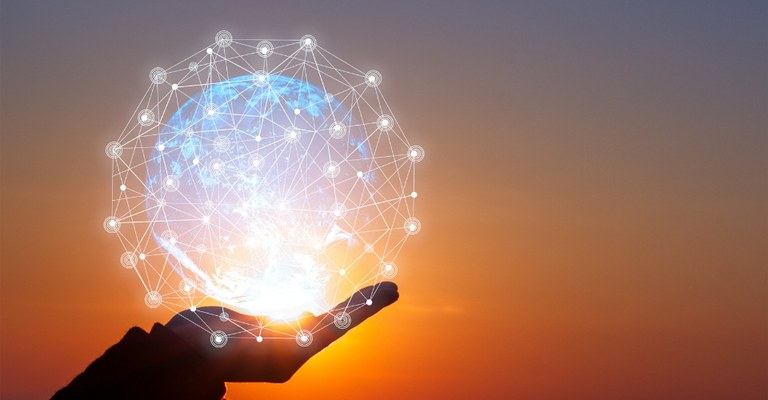
Innovating for a greener future: European water service priorities
Our world is changing rapidly and so are water services. Innovation is key to guaranteeing the affordability of safe, sustainable and resilient water services for the decades to come. Water service providers are well aware of the challenges and have ...
Our world is changing rapidly and so are water services. Innovation is key to guaranteeing the affordability of safe, sustainable and resilient water services for the decades to come. Water service providers are well aware of the challenges and have identified a number of technological and non-technological areas requiring particular innovation efforts with a view to meeting the goals of the European Green Deal.
The research needs are laid out in this report and should help policy makers in designing research and innovation programmes in a way that responds to the real needs of drinking water and wastewater operators.
You can find the report here.
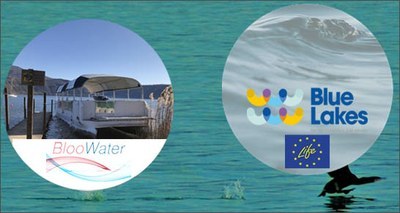
Environment: Lakes, ENEA takes action against cyanobacteria and microplastics
ENEA takes action against cyanobacteria, the so-called green-blue algae, and microplastics, the two emergencies which affect lakes in Italy and throughout the world, with effects on human health, ecosystems, quality of drinking water and economic ...
ENEA takes action against cyanobacteria, the so-called green-blue algae, and microplastics, the two emergencies which affect lakes in Italy and throughout the world, with effects on human health, ecosystems, quality of drinking water and economic activities. The activities are part of the projects BlooWater and Blue Lakes, coordinated respectively by ENEA and Legambiente.
The project BlooWater against cynobacteria has the objective of developing innovative technological solutions and new methodologies to monitor and treat the lakes of Albano (Rome) and Castreccioni (Macerata) in Italy and Erken (north of Stockholm) and Mälaren in Sweden.
In addition to ENEA, Polytechnic University of the Marches, Uppsala University (Sweden) and Norwegian Institute for Water Research (NIVA) take part in the project.
As part of the project and by 2022, the researchers at the ENEA Biodiversity and Ecosystem Services Laboratory, jointly with the other partners, have the task of developing monitoring systems for algal blooms through the integration of satellite and drone images, with analysis of water samples, forecasting models and early warning and decision support systems and innovative methods for the treatment of fresh water for drinking use.
Fighting cyanobacteria is crucial, as they are responsible for algal blooms that can release toxic substances – cyanotoxins- contaminating drinking water.
In 2014, for instance, the inhabitants of Toledo, Ohio, remained without water for three days due to an exceptional algal bloom of cyanobacteria and in Italy 12 regions out of 20 are hit by this phenomenon. Periodic blooms of the cyanobacterium also occurred in the Lazio lakes of Vico, Albano e Nemi.
Toxic algal blooms from cyanobacteria have been reported for decades all over the world, but in recent years they seem to have increased in several environments at all latitudes. Some authors explicitly link the increase in cyanobacteria to global warming, which could act as a catalyst.
"Climate change and pollution are among the main causes of toxic algal blooms that cyclically occur in lakes and seas of industrialized and developing countries and, more generally, in densely populated areas where the effects of anthropic activities are greatest", Maria Sighicelli, at the ENEA Sustainability of Production and Territorial Systems Department, pointed out.
"Potential risks to public health derive from the use of drinking water and fish products from contaminated lakes, the use of water for hygiene and health and recreational purposes," he said.
* The Bloowater project is cofunded under the ERA-NET Cofund WaterWorks2017 Call, integral part of the 2018 Joint Activities developed by the Water Challenges for a Changing World Joint Programme Initiative (Water JPI).
Fight against microplastics – project Blue Lakes
The LIFE Blue Lakes project aims at reducing and preventing microplastics waste in Italian and German lakes, developing shared protocols of sampling and analysis methods and promoting diffusion of good practices to be extended to institutions, bodies and local authorities, companies and citizens. The project, which is coordinated by Legambiente and co-funded by PlasticsEurope, includes ENEA, Arpa Umbria, Central Italy Basin Authority, Global Nature Fund, Lake Constance Foundation and Polytechnic University of Marche.
In particular, technical protocols and a series of ad hoc actions will be developed including: a Lake Charter, containing indications for reducing the environmental impact, awareness raising activities, advocacy campaigns for companies and institutional tables.
According to data by ENEA and Goletta dei Laghi, microplastics, i.e. plastic particles of less than 5 millimeters, are increasingly endangering Italian lakes, with a growing trend in the three-year period 2017-2019: in Lake Garda the average concentration of plastic microparticles per km2 went from approximately 10 thousand in 2017 to over 130 thousand in 2019; in Lake Trasimeno from 8 thousand to 25 thousand, while in Lake Bracciano from 117 thousand to over 390 thousand.
In all lakes the debris predominantly found over the three-year span were fragments deriving from the disaggregation of leftover plastic waste, followed by films (usually from packaging) in central Italy lakes, and filaments (from clothes-washing) and polystyrene balls (often from crates and packaging) in Lake Garda. The most frequent type of polymer is polyethylene, one of the most common synthetic polymers.
"The analysis of data and sampling methods shows the need to increase and improve the protocols developed so far to make them suitable to the morphological characteristics of each lake and the size of the water body for greater spatial coverage, according to terrestrial inputs and seasonal winds but more generally to a standard to be submitted to the institutions in charge of environmental protection, and the project is an opportunity to test the protocols ENEA has developed over the years ", Sighicelli concluded.
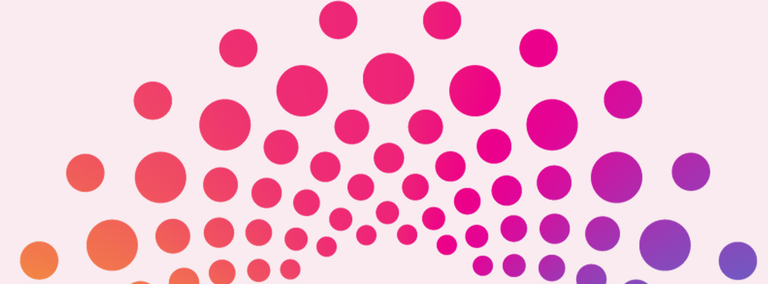
Defining a Decade of Global Sustainability Science Action: Call for Inputs
Mobilizing global sustainable science action is imperative if we are to realize the 2030 Agenda. The International Science Council is currently running a call for inputs to shape a priority action agenda for science.
In the last few months, the COVID-19 pandemic has reminded us of the interconnected nature of the common and global challenges we face, arising from growing pressures on the environment, and endangering not only public health, but also the economy ...
In the last few months, the COVID-19 pandemic has reminded us of the interconnected nature of the common and global challenges we face, arising from growing pressures on the environment, and endangering not only public health, but also the economy and society as a whole. To minimize the risk of large-scale shocks in the future, achieving the 2030 Agenda and its 17 Sustainable Development Goals (SDGs) has become even more important and urgent.
As with the COVID-19 pandemic, mobilizing global science action is essential if we are to realize the 2030 Agenda. Recognizing this urgency, science funders and the research community have initiated a “Decade of Global Sustainability Science Action” in order to catalyse collective action for accelerating the impact of science and science funding on the achievement of the SDGs.
To this end, science funders have asked the International Science Council (ISC) to convene the insights and ideas of the broader global scientific community on the critical priorities for science that will support and enable societies to accomplish the goals by 2030.
It is in this context that we would like to seek your expert views on priorities for game-changing action in two related domains:
- science for sustainability transformations, and
ii. transformations of science systems.
This is a unique opportunity for the international science community to advise science funders about the support that science needs in order to maximize its impact on the achievement of the SDGs in the next decade.
By sharing your views via this survey by 2 October 2020, you will help to shape the international science funding agenda.
If you need any further information, please contact Katsia Paulavets at katsia.paulavets@council.science
Survey launched by European Commission on Horizon Europe First Strategic Plan
Deadline Friday, 18 September 2020, 18.00 Brussels time
The European Commission has launched a survey on its first strategic plan for Horizon Europe. The survey is part of the strategic planning process, to which the European Parliament, EU ...
Deadline Friday, 18 September 2020, 18.00 Brussels time
The European Commission has launched a survey on its first strategic plan for Horizon Europe. The survey is part of the strategic planning process, to which the European Parliament, EU Member States, Countries of the European Economic Area (EEA Countries), as well as stakeholders and interested citizens, contribute collectively.
The objective of the survey is to receive feedback on the expected impacts to be targeted by research and innovation within Horizon Europe and the contribution of Research and Innovation (R&I) investments to the EU’s political priorities.
The results of the survey will be used to finalise the Strategic Plan and to precise the impact logic, which will set the direction for to the future Horizon Europe work programmes.
The survey is structured around six Horizon Europe clusters and their expected impacts:
- Health;
- Culture, Creativity and Inclusive Society;
- Civil Security for Society;
- Digital, Industry and Space;
- Climate, Energy and Mobility;
- Food, Bioeconomy, Natural Resources, Agriculture and Environment.
To fill the survey, click here.
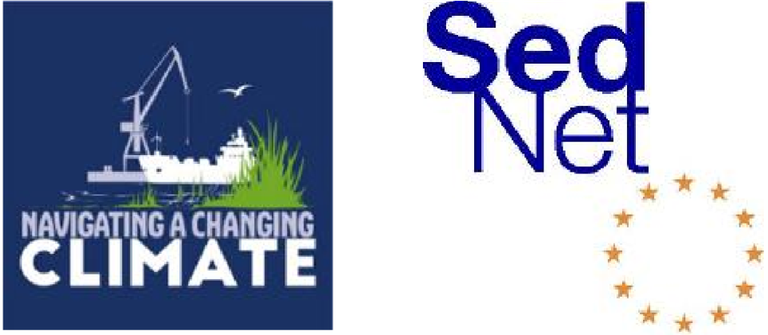
Call for presentations: workshop on Sediment management opportunities to address the climate change challenge
* Planned to be 2 days in Rome, Italy, 10-11 February 2021 but possibly an online event depending on how the COVID-19 situation evolves
The workshop is organised by the Navigating a Changing Climate partners with the collaboration of SedNet. The event will cover topics such as nature-based solutions, Working with Nature and natural resilience; beneficial use of dredged material in ...
The workshop is organised by the Navigating a Changing Climate partners with the collaboration of SedNet. The event will cover topics such as nature-based solutions, Working with Nature and natural resilience; beneficial use of dredged material in the application of the waste hierarchy; habitat enhancement for improved ecosystem services; and carbon sequestration and management. Speakers will comprise a mix of invited experts and a call for presentations, the latter is now open for submissions – deadline 31 October 2020. Please use this format for abstracts.
The workshop, entitled “Addressing climate change challenges with sediment management”, is planned to comprise two consecutive half-day sessions. Its aim is to facilitate knowledge exchange, disseminate good practice, highlight opportunities, and identify gaps in understanding or research needs in relation to the following topics, with an emphasis on ports, waterways, dredging and associated infrastructure/activities:
- Role of sediment management in carbon sequestration and storage: opportunities to contribute to a net reduction in GHG emissions
- Sediments and climate change adaptation: seeking flexible and adaptive solutions to strengthen resilience and adapt port and navigation infrastructure and operations
- Habitat enhancement and creation, Working with Nature and other nature-based solutions: using nature to strengthen the natural resilience of ports and waterways including sediment use (e.g. sand-engine and dunes) for protection against flooding
- Sediment management, circular economy and the waste hierarchy: reduce (e.g. reduce the need for extraction of virgin aggregate); reuse (e.g. shift perceptions of sediment from a waste to a resource); recycle (e.g. optimising sediment placement)
- Emerging issues and opportunities: enabling contributors to the workshop to offer presentations on other sediment management and climate change-related topics, such as how to prevent climate change-induced flooding eroding and remobilising historically contaminated sediments and soils from upstream river banks and transporting them downstream; or how changed environmental conditions may affect sediment quality guidelines.
Those interested in making a presentation at this workshop are encouraged to use the provided template to prepare a one-page overview (abstract).
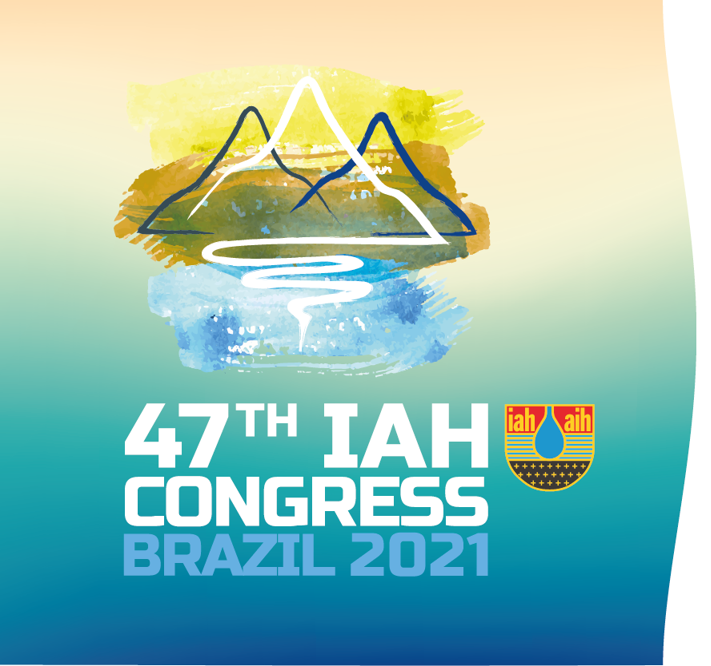
IAH 2021 Brazil Congress
The year 2020 has been marked by big challenges. It is time to strengthen partnerships, increase ties and above all to remain firm within our purposes.
The 2021 World Groundwater Congress has already started and will be carried out in two phases: ...
The year 2020 has been marked by big challenges. It is time to strengthen partnerships, increase ties and above all to remain firm within our purposes.
The 2021 World Groundwater Congress has already started and will be carried out in two phases:
- From September 21st 2020 until August 20th 2021: 100% online event.
During this period a series of meetings, lives, webinars and discussions will also be promoted, addressing relevant and innovative themes presented by industry references. - From August 22nd until August 27th 2021: 47th IAH Congressat Espaço Arca in São Paulo, Brazil - HYBRID Event (online and on-site)
The adequacy of the date for the event aims to bring all those involved, authors, congressmen, exhibitors, sponsors, suppliers and other partners, greater security and tranquility regarding their participation, since the future scenario is positive for the control of the pandemic and emergence of vaccines.
Our groundbreaking 2021 Groundwater World Congress gathered three large water groups, International Association of Hydrogeologists (IAH), Latin American Groundwater Association (ALHSUD) and Brazilian Groundwater Association (ABAS), and its events, 47th IAH Brazil Congress, XV Latin American Congress of Hydrogeology, XXI Brazilian Congress of Groundwater, XXII National Meeting of Well Drillers and National Water Fair, aims to create and engage the largest groundwater community in the world, all user sectors, products and services demonstration, in addition to promoting knowledge and networking.
Regarding the deadlines related to the submission of papers and applications,
follows the new schedule:
• Abstract Submission deadline: February 28, 2021
• Abstract Acceptance: April 30, 2021
• Registration, End of Early Bird: May 31, 2021
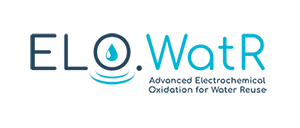
ELO.WatR 1st International workshop on Advanced Electrochemical Oxidation for Water Reuse
Electrochemical advanced oxidation processes have been widely studied by scientists for the last 30 years in applications for water and wastewater treatment.
The novel advanced materials play a key role in electrocatalysis enhancement to promote ...
Electrochemical advanced oxidation processes have been widely studied by scientists for the last 30 years in applications for water and wastewater treatment.
The novel advanced materials play a key role in electrocatalysis enhancement to promote oxidants formation through both oxygen reduction and evolution reactions. Multifunctional materials have been also recently developed to combine reactions with separation mechanisms in hybrid multi-step treatment systems.
In parallel, the new knowledge in degradation and mineralization mechanisms in real effluents, including intermediates identification / quantification and their related ecotoxicity / biodegradability, gives important information towards the development strategy for real applications. Furthermore, the use of electrochemical engineering tools for upscaling those processes become crucial for a better optimization of reactions and separations mechanisms through reactor design and hydrodynamics studies combined with modeling.
Upon the exciting new scientific and technological insights in this area of research, the goal of this first international workshop is to promote the development of those electrochemical technologies for challenging applications in water and wastewater treatment and reuse by gathering the community around the three main following topics:
- Material sciences & interface studies
- (Electro)-chemical reactions & kinetics
Electrochemical engineering & industrial applications
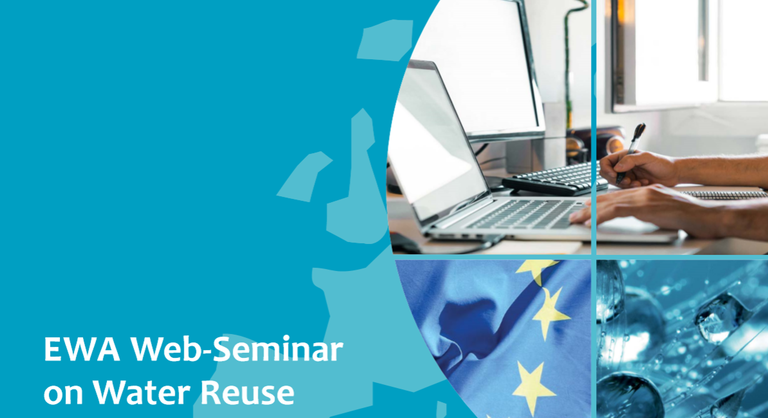
EWA Innovation Series : Web-seminar on Water Reuse
The participants of the webinar will be guided through the new EU water reuse regulation. They will also get an overview of already available and practically verified technologies for production of reclaimed water. The participants will learn about ...
The participants of the webinar will be guided through the new EU water reuse regulation. They will also get an overview of already available and practically verified technologies for production of reclaimed water. The participants will learn about the experiences from large water reuse systems operated traditionally in countries of southern Europe. The participants will also get the opportunity to discuss problems connected with water reuse like public perception of reclaimed water and to share views on prospects of water reuse as an important part of the whole water sector.
Target group:
The webinar is intended for all professionals involved in water resources management, wastewater treatment and reuse, water quality control and also for specialist from the group of reclaimed water end users. There are a lot of research activities currently being conducted in the area of water reuse, and therefore the webinar will be interesting also for researchers, university academics and especially MSc. and Ph.D. students.
For registration and payment, please send an email to payment@ewa-online.eu
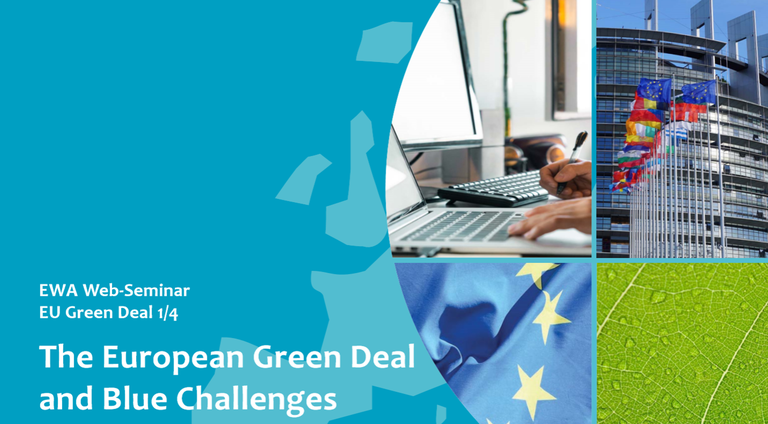
EWA Web-Seminar EU Green Deal: The European Green Deal and Blue Challenges
This online event is the first in the EWA online series: 'The European Green Deal and Blue Challenges'
The European Water Association launches its 15th EWA Brussels Conference as a series of 4 online seminars under the theme of ‘The European Green Deal and Blue Challenges’. This web-seminar is the first.
Presenters:
• Veronica Manfredi, Director ...
The European Water Association launches its 15th EWA Brussels Conference as a series of 4 online seminars under the theme of ‘The European Green Deal and Blue Challenges’. This web-seminar is the first.
Presenters:
• Veronica Manfredi, Director for Quality of Life (Air, Water & Industrial Emissions) at the European Commission, Brussels, BE: ‘Water Policy within the 2019-2024 EC priorities: state of play and key challenges ahead’
• Jutta Paulus, MEP: ‘EU Green Deal – Perspective from the Parliament’
• Christophe Hansen, MEP: ‘EU Green Deal – Perspective from the Parliament’
Moderators:
• Wendy Francken, Chair of the European Policy Committee of the European Water Association
• Bjørn Kaare Jensen, President of the European Water Association
Practical information
Each web-seminars will start at 14:30 CET
It will be possible to ask questions during the web-seminars.
Registration fee: € 79,00 pro seminar or € 249,00 for all 4 web-seminars.
Registration and payment (email to: payment@ewa-online.eu)
